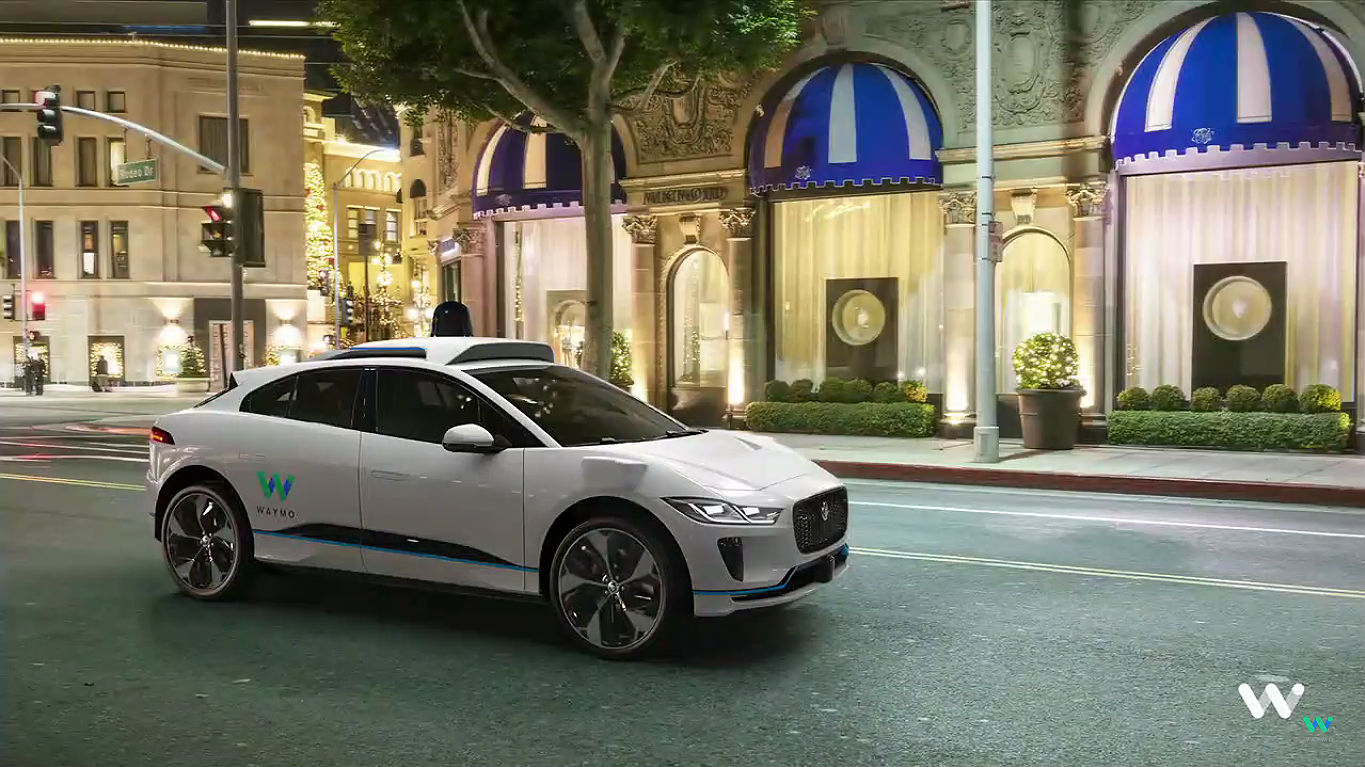
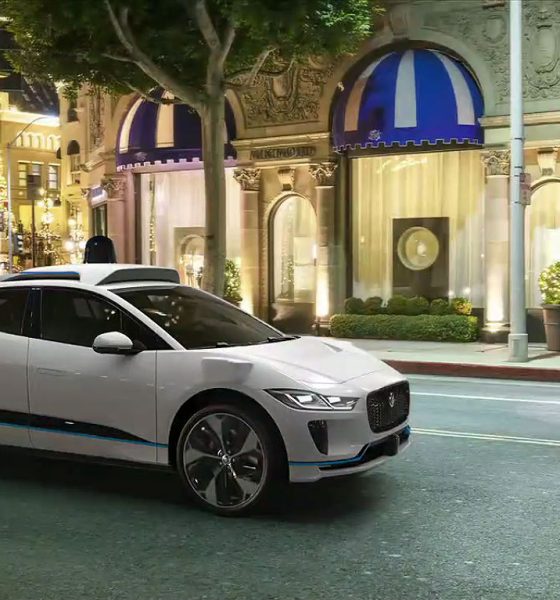
News
Waymo’s application for driverless testing challenged by consumer group
Consumer Watchdog, a nonprofit consumer group, has called on the Department of Motor Vehicles to make its application process for granting permits to autonomous car companies available to the public. The consumer group’s challenge comes amid reports that Waymo has provided all the necessary information to the DMV as part of its efforts to secure a permit to test driverless cars on public roads.
According to a press release from the consumer group, Waymo’s application for public testing was the second that was filed to the DMV. The first company failed to meet the DMV’s requirements, resulting in the agency asking for more data. Waymo, however, managed to meet the DMV’s full requirements, making its application ready for review.
John M. Simpson, Consumer Watchdog’s Privacy and Technology Project director, noted that the review process for Waymo’s permit should be a public process. According to Simpson, Waymo would be using public roads as its “laboratories” and civilians as its “guinea pigs;” hence, it is only appropriate for the DMV to provide full transparency.
“This should be a completely public process. The companies want to use our public roads as laboratories and us as human guinea pigs. There should be complete transparency about what’s happening. Waymo’s application, as well as the insufficient one from the unknown company, should be posted on the web so the public can see what’s going on and comment,” he said.
Simpson further noted that if Waymo is fully confident in its driverless technology, there should be no problem in sharing its data with the public.
“If Waymo’s robot technology is so good, they should have nothing to hide. If the DMV doesn’t post the application, Waymo should,” Simpson said.
Overall, Consumer Watchdog is concerned that Waymo’s autonomous cars are not yet ready to go fully driverless. According to the consumer group’s press release, a detailed analysis of Waymo’s disengagement reports shows that the Google-backed company’s vehicles still make mistakes in otherwise simple driving scenarios. Among these include reacting to incorrectly parked cars, shorter-than-average yellow lights, and rapid fluctuations in street traffic.
Sahiba Sindhu, a consumer advocate of Consumer Watchdog, expressed the group’s stance on the idea of Waymo’s vehicles testing on public roads without a human driver.
“The DMV has proof in the data in these reports that robot cars require a driver ready to take control of the wheel in order to ensure public safety. The least the DMV can do is ensure public transparency and corporate accountability in the process, so we know what’s going on,” Sindhu said.
Waymo has so far continued to push its driverless initiatives. Just last month, Waymo CEO John Krafcik unveiled the company’s latest addition to its fleet of autonomous vehicles — the Tesla Model X-competing Jaguar I-PACE. According to the CEO, the autonomous I-PACE fleet is set to start testing sometime later this year, with Waymo deploying as many as 20,000 of the vehicles within two years of production.

Cybertruck
Tesla Cybertruck’s newest trim will undergo massive change in ten days, Musk says
It appears as if the new All-Wheel-Drive trim of Cybertruck won’t be around for too long, however. Elon Musk revealed this morning that it will be around “only for the next 10 days.”
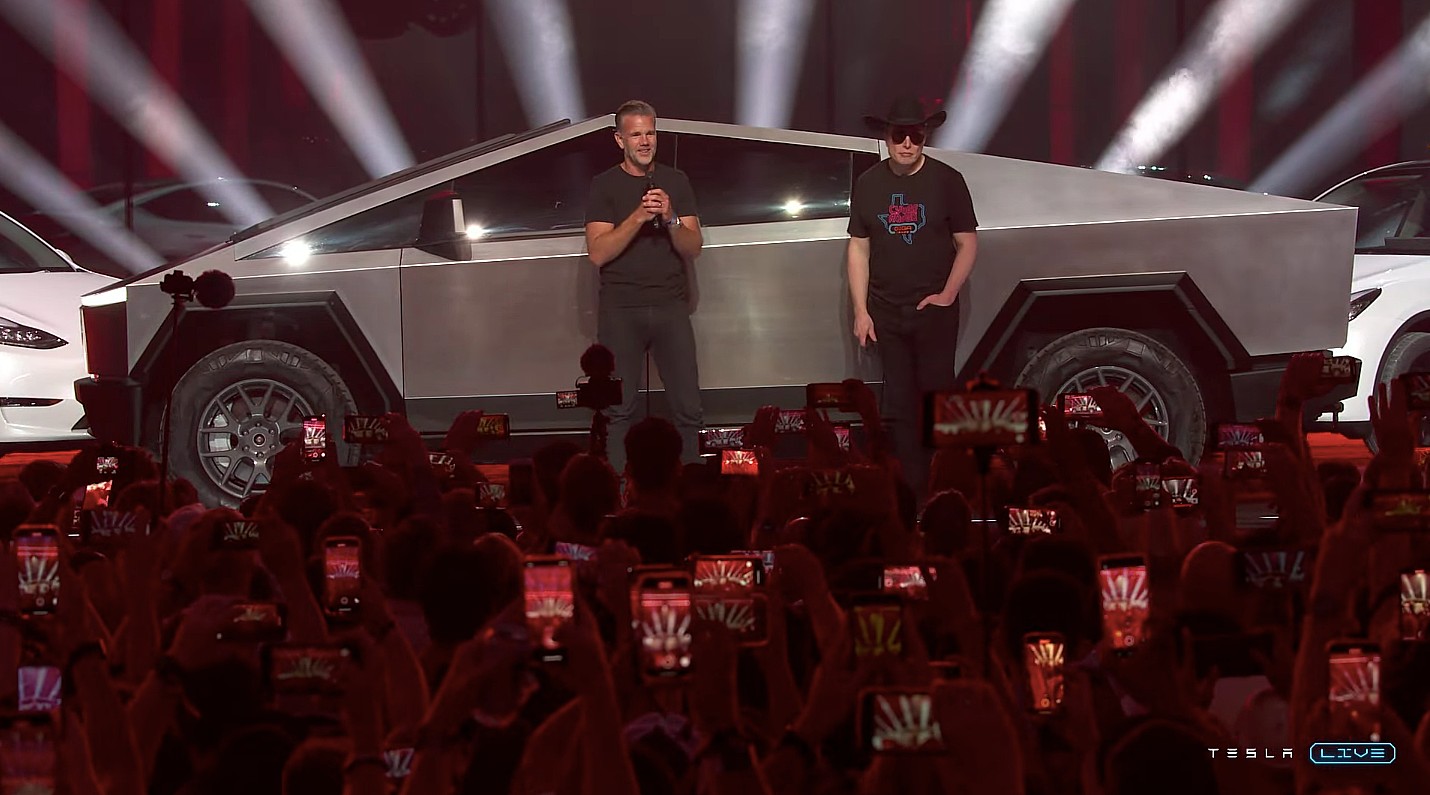
Tesla’s new Cybertruck trim has already gotten the axe from CEO Elon Musk, who said the All-Wheel-Drive configuration of the all-electric pickup will only be available “for the next ten days.”
Musk could mean the price, which is $59,990, or the availability of the trim altogether.
Last night, Tesla launched the All-Wheel-Drive configuration of the Cybertruck, a pickup that comes in at less than $60,000 and features a competitive range and features that are not far off from the offerings of the premium trim.
Tesla launches new Cybertruck trim with more features than ever for a low price
It was a nice surprise from Tesla, considering that last year, it offered a Rear-Wheel-Drive trim of the Cybertruck that only lasted a few months. It had extremely underwhelming demand because it was only $10,000 cheaper than the next trim level up, and it was missing a significant number of premium features.
Simply put, it was not worth the money. Tesla killed the RWD Cybertruck just a few months after offering it.
With the news that Tesla was offering this All-Wheel-Drive configuration of the Cybertruck, many fans and consumers were encouraged. The Cybertruck has been an underwhelming seller, and this seemed to be a lot of truck for the price when looking at its features:
- Dual Motor AWD w/ est. 325 mi of range
- Powered tonneau cover
- Bed outlets (2x 120V + 1x 240V) & Powershare capability
- Coil springs w/ adaptive damping
- Heated first-row seats w/ textile material that is easy to clean
- Steer-by-wire & Four Wheel Steering
- 6’ x 4’ composite bed
- Towing capacity of up to 7,500 lbs
- Powered frunk
It appears as if this trim of Cybertruck won’t be around for too long, however. Musk revealed this morning that it will be around “only for the next 10 days.”
Only for the next 10 days https://t.co/82JnvZQGh2
— Elon Musk (@elonmusk) February 20, 2026
Musk could mean the price of the truck and not necessarily the ability to order it. However, most are taking it as a cancellation.
If it is, in fact, a short-term availability decision, it is baffling, especially as Tesla fans and analysts claim that metrics like quarterly deliveries are no longer important. This seems like a way to boost sales short-term, and if so many people are encouraged about this offering, why would it be kept around for such a short period of time?
Some are even considering the potential that Tesla axes the Cybertruck program as a whole. Although Musk said during the recent Q4 Earnings Call that Cybertruck would still be produced, the end of the Model S and Model X programs indicates Tesla might be prepared to do away with any low-volume vehicles that do not contribute to the company’s future visions of autonomy.
The decision to axe the car just ten days after making it available seems like a true head-scratcher.
Elon Musk
Elon Musk’s Neuralink sparks BCI race in China
One of the most prominent is NeuroXess, which launched in 2021 and is already testing implants in patients.
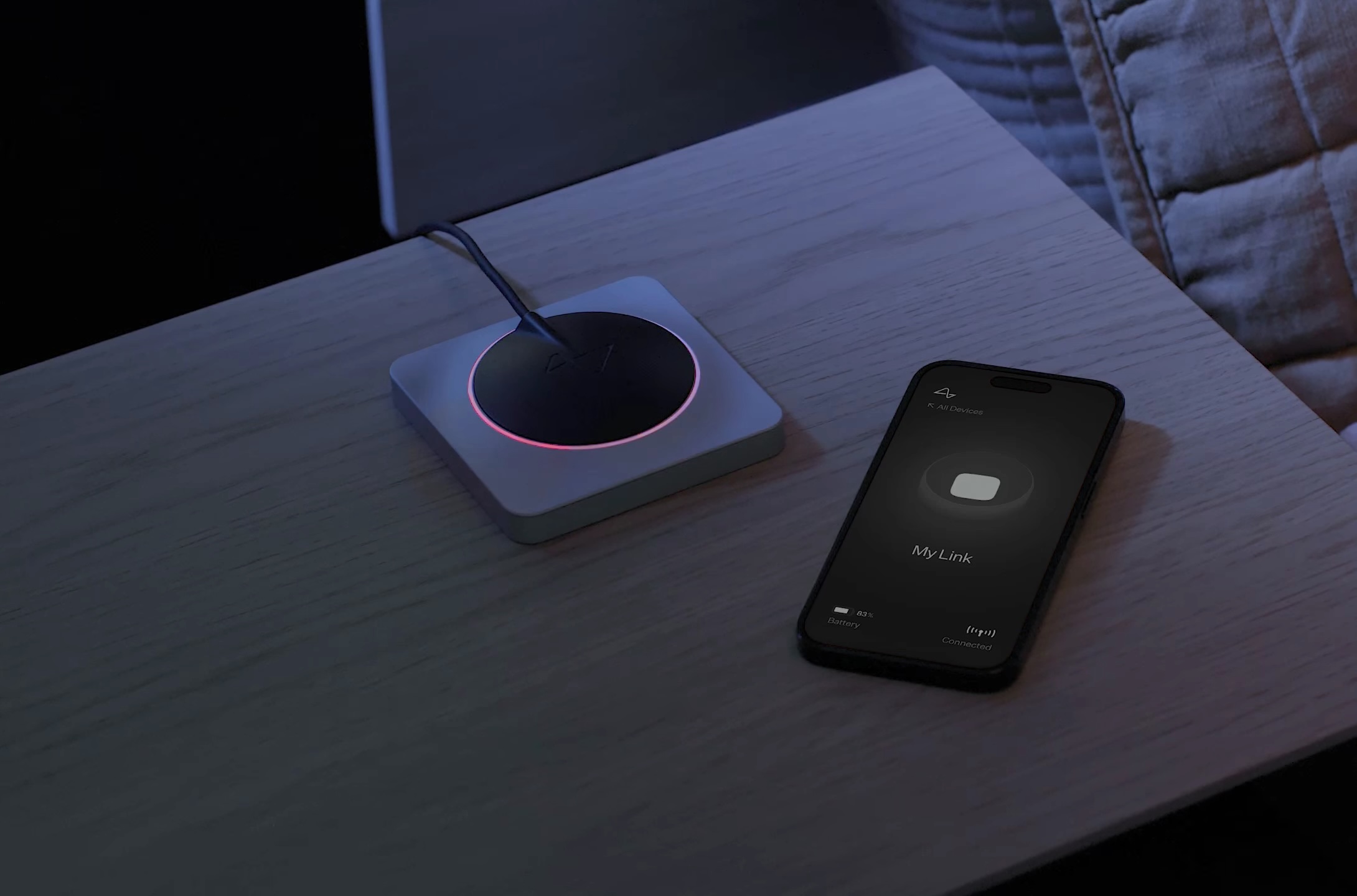
Neuralink, founded by Elon Musk, is helping spark a surge of brain-computer interface (BCI) development in China, where startups are moving quickly into human trials with strong state backing.
One of the most prominent is NeuroXess, which launched in 2021 and is already testing implants in patients.
Neuralink’s clinical work and public demonstrations have drawn worldwide attention to invasive brain implants that allow patients to control digital devices using their minds. The company is currently running a global clinical trial and is also busy preparing for its next product, Blindsight, which would restore vision to people with visual impairments.
Neuralink’s visibility has helped accelerate similar efforts in China. Beijing last year classified brain-computer interfaces as a strategic sector and issued a roadmap calling for two or three globally competitive companies by 2030, as per the Financial Times. Since February last year, at least 10 clinical trials for invasive brain chips have launched in the country.
NeuroXess recently reported that a paralyzed patient was able to control a computer cursor within five days of implantation. Founder Tiger Tao credited government support for helping shorten the path from research to trials.
Investment activity has followed the policy push. Industry data show dozens of financing rounds for Chinese BCI startups over the past year, reflecting rising capital interest in the field. Ultimately, while Neuralink remains one of the most closely watched players globally, its momentum has clearly energized competitors abroad.
News
Tesla Supercharger vandalized with frozen cables and anti-Musk imagery amid Sweden union dispute
The incident comes amid Tesla’s ongoing labor dispute with IF Metall.
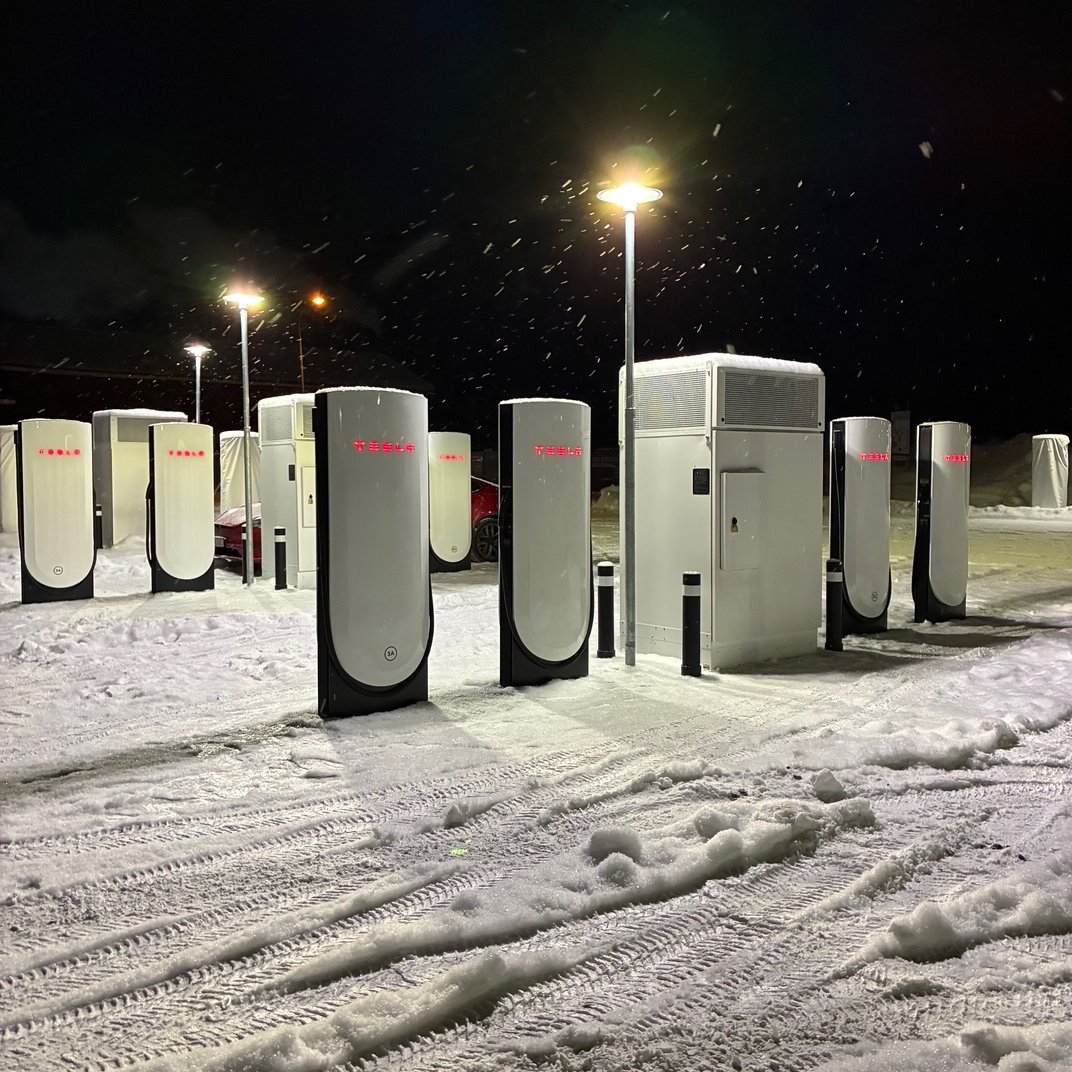
Tesla’s Supercharger site in Vansbro, Sweden, was vandalized during peak winter travel weeks. Images shared to local media showed frozen charging cables and a banner reading “Go home Elon,” which was complete with a graphic of Musk’s controversial gesture.
The incident comes amid Tesla’s ongoing labor dispute with IF Metall, which has been striking against the company for more than two years over collective bargaining agreements, as noted in a report from Expressen.
Local resident Stefan Jakobsson said he arrived at the Vansbro charging station to find a board criticizing Elon Musk and accusing Tesla of strikebreaking. He also found the charging cables frozen after someone seemingly poured water over them.
“I laughed a little and it was pretty nicely drawn. But it was a bit unnecessary,” Jakobsson said. “They don’t have to do vandalism because they’re angry at Elon Musk.”
The site has seen heavy traffic during Sweden’s winter sports holidays, with travelers heading toward Sälen and other mountain destinations. Jakobsson said long lines formed last weekend, with roughly 50 Teslas and other EVs waiting to charge.
Tesla Superchargers in Sweden are typically open to other electric vehicle brands, making them a reliable option for all EV owners.
Tesla installed a generator at the location after sympathy strikes from other unions disrupted power supply to some stations. The generator itself was reportedly not working on the morning of the incident, though it is unclear whether that was connected to the protest.
The dispute between Tesla and IF Metall centers on the company’s refusal to sign a collective agreement covering Swedish workers. The strike has drawn support from other unions, including Seko, which has taken steps affecting electricity supply to certain Tesla facilities. Tesla Sweden, for its part, has insisted that its workers are already fairly compensated and it does not need a collective agreement,
Jesper Pettersson, press spokesperson for IF Metall, criticized Tesla’s use of generators to keep charging stations running. Still, IF Metall emphasized that it strongly distances itself from the vandalism incident at the Vansbro Supercharger.
“We think it is remarkable that instead of taking the easy route and signing a collective agreement for our members, they are choosing to use every possible means to get around the strike,” Pettersson said.








